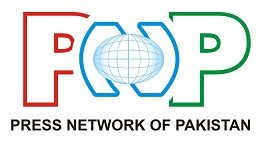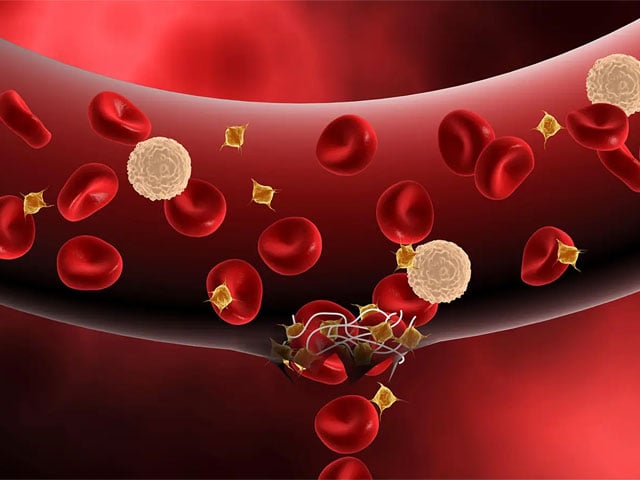Karachi: Hematologist Dr. Saqib Ansari has said that according to a conservative estimate, 10,000 children are suffering from hemophilia in Pakistan. In Karachi alone, 3,000 children are affected by the disease, but unfortunately, due to the lack of official registration across the country, the exact number of affected children cannot be estimated.
He expressed these views while addressing a workshop held at Gulshan Iqbal Children’s Hospital on the occasion of World Hemophilia Day.
Dr. Saqib Ansari said in his address that hemophilia is a hereditary disease that can be transmitted from parents to children. Which in common term is called bleeding disease. In this disease, the blood clotting cells in the body are reduced to such an extent that if there is an injury or wound, it takes a long time for the blood to stop or clot and the chances of death increase as a result of excessive bleeding.
He said that in the severity of the disease, blood can be discharged from the patient’s body even without any accident. Proteins made in the liver called factors play a key role in the blood clotting system and are factors 1 through 13. When a normal healthy person suffers an injury, after a certain period of bleeding, a membrane naturally forms on the surface, which helps to stop the bleeding. This membrane is called a ‘clot’ in medical terms, but if the gene for the protein (factor) that forms the membrane is affected, the process of protein formation stops and the blood does not clot, and this process causes hemophilia.
The number of hemophilia patients worldwide is about 400,000, but the alarming fact is that 75% of them are undiagnosed or under-treated or do not have access to proper treatment. would have
He said that there are three types of hemophilia: Hemophilia A, B and Rare Factor Deficiencies. The most common of these is hemophilia A. One in every five thousand newborns is affected by hemophilia A. This type lacks factor viii. Hemophilia is classified according to the severity, according to which the first level is mild hemophilia (Mild Hemophilia), in which the number of clotting factors is found more than 5 percent. In the second level, factors in moderate hemophilia (Moderate Hemophilia) The number of clotting factors is one to 5 percent and in severe hemophilia, the amount of clotting factors is less than one percent.
Dr. Saqib Ansari said that in general, the initial diagnosis of the disease is made when the blood continues to flow for a long time after cutting the navel or circumcision of the newborn at the time of birth. In addition, continuous bleeding from the nose of the child, urine. Bleeding, bleeding gums and swelling of the joints can be possible symptoms of this disease. Hematologists are usually consulted by patients suffering from severe hemophilia, moderate and mild hemophiliacs need treatment when they have surgery, an accident or injury, etc. Mild and moderate hemophilia. The life of the patients is slightly better, but there is no permanent treatment for this disease, which can result in complete recovery. It cannot even happen that if the parents suffering from the disease are treated, the disease will not be transmitted to their children.
He said that hemophilia patients around the world are injected with factor viii or ix three times 48 hours apart. These are the factors, which are not naturally found in the patient’s blood. But since these factor injections are very costly and are not available in Pakistan, so our patients are given Fresh Frozen Plasma (FFP) or frozen plasma, that is, timely transfusion of clean and healthy blood. What is left after removing the blood cells and platelets from healthy blood is called fresh frozen plasma. Von Willebrand Disease, another disease similar to hemophilia, is also common in Pakistan. In this disease also the process of blood clotting is affected and it is also inherited.
(function(d, s, id){
var js, fjs = d.getElementsByTagName(s)[0];
if (d.getElementById(id)) {return;}
js = d.createElement(s); js.id = id;
js.src = “//connect.facebook.net/en_US/sdk.js#xfbml=1&version=v2.3&appId=770767426360150”;
fjs.parentNode.insertBefore(js, fjs);
}(document, ‘script’, ‘facebook-jssdk’));
(function(d, s, id) {
var js, fjs = d.getElementsByTagName(s)[0];
if (d.getElementById(id)) return;
js = d.createElement(s); js.id = id;
js.src = “//connect.facebook.net/en_GB/sdk.js#xfbml=1&version=v2.7”;
fjs.parentNode.insertBefore(js, fjs);
}(document, ‘script’, ‘facebook-jssdk’));


